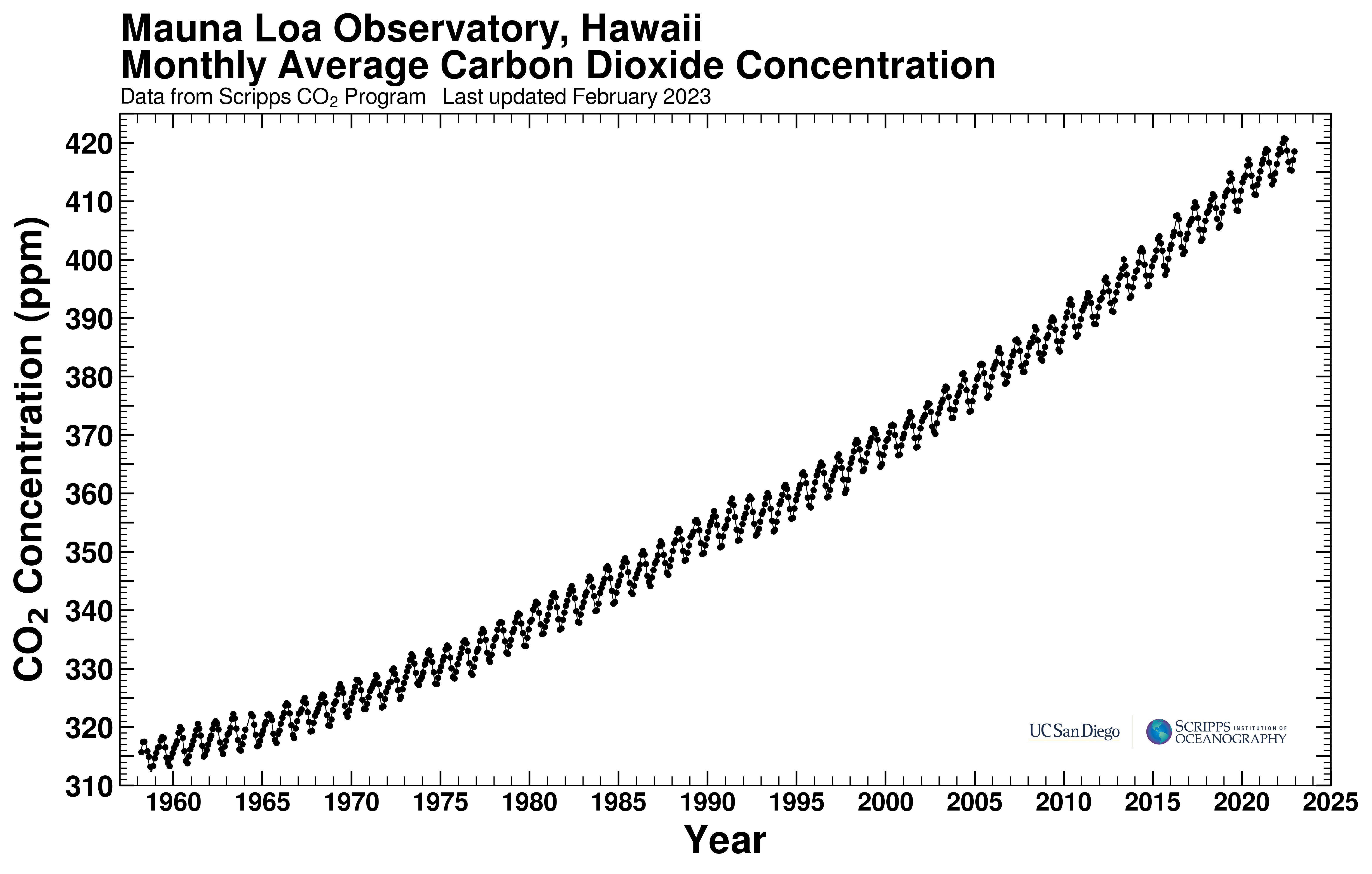About
Carbon dioxide is a greenhouse gas that plays an important role
in determining the global climate. Since the 1850s, scientists have suspected that human
activities, such as the widespread use of fossil fuels, release carbon dioxide into the
atmosphere. However, reliable data on atmospheric carbon dioxide were lacking.
In 1958, scientist Charles Keeling began measuring the amount of atmospheric carbon dioxide at
the Mauna Loa Observatory in Hawaii. Measurements at the observatory still continue today and
have produced one of the most iconic data sets in all of science.
The carbon dioxide measurements from Mauna Loa are shown in the graph below, which is known as
the Keeling Curve. Visit the Keeling Curve website to view the latest version
of the graph, and explore this Click & Learn to learn about the factors that affect the patterns
in the data.

The x-axis is labeled 'Year' and ranges from 1960 to 2025 in increments of 5 years. The y-axis is labeled 'C O 2 concentration in parts per million' and ranges from 310 to 425 in increments of 10. The data points begin at around 318 in 1958 and around 420 in 2022, narrowly zig-zagging from year to year with an overall upward trend. A black line connects the points, creating a saw-tooth pattern.
Producers
Mark Nielsen, HHMI
Steve Getty, Colorado College, CO
Original Concept
These materials are based in part on Carbon Connections, an interactive educational program
developed by BSCS Science Learning and Oregon Public Broadcasting with support from NASA under
Award No. NNX10AB56A to BSCS.
Reviewers
Paul Beardsley, Cal Poly Pomona
Writing and Editing
Mark Nielsen, HHMI
Esther Shyu, HHMI
UI/UX Design and Development
Mataan Peer, Colorado College, CO (2020 Senior Capstone Project CP499)
Henry Rose, Colorado College, CO (2020 Senior Capstone Project CP499)
Josephine Stevens, Colorado College, CO (2020 Senior Capstone Project CP499)
Madeline Strasser, Colorado College, CO (2020 Senior Capstone Project CP499)
Josh Rowe, nocoded, LLC
Illustrations
Photographs
Cover photograph of the Pacific Ocean from NASA
Version 1.2
Updated on November 23, 2023
